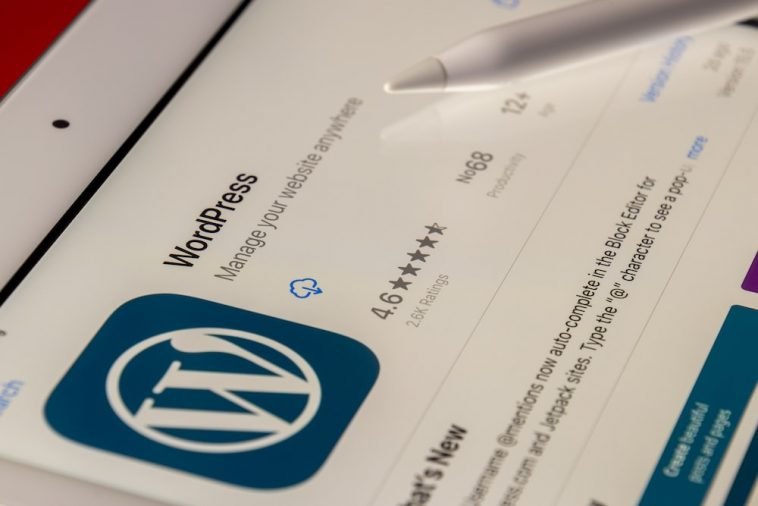Introduction.
Choosing the right blog platform can make a big difference when you’re aiming to earn some extra income online.
WordPress and Blogger are two of the most popular options, each with its strengths and quirks.
While WordPress is often praised for its flexibility and robust feature set, Blogger is known for its simplicity and ease of use.
The decision between these platforms can significantly impact how quickly you start earning, how much control you have over your content, and even the potential growth of your blog.
I’ll break down these platforms, comparing their features, ease of use, monetization options, and long-term potential to help you decide which one is better suited for making additional income.
Which Blog Platform Is Better To Use To Make Some Additional Income: WordPress Or Blogger?
Choosing the right platform for your blog is a crucial decision, especially if your goal is to make some additional income.
Two of the most popular platforms, WordPress and Blogger, offer distinct advantages and limitations.
Understanding these can help you make an informed choice that aligns with your needs and income goals.
1. Understanding WordPress and Blogger.
WordPress is a highly customizable content management system (CMS) that powers over 40% of all websites on the internet.
It comes in two versions: WordPress.com, a hosted service with free and paid plans, and WordPress.org, a self-hosted option that gives you full control over your site.
Blogger, on the other hand, is a simpler, free blogging platform owned by Google. It’s easy to set up, requiring only a Google account, and it’s entirely free, with no hosting or domain fees unless you choose to use a custom domain.
2. Customization and Flexibility.
When it comes to customization, WordPress.org is the clear winner. It offers thousands of themes and plugins, allowing you to tailor your site to your specific needs.
You can build anything from a simple blog to a full-fledged e-commerce site.
This flexibility is crucial if you’re looking to monetize your blog through various methods like affiliate marketing, sponsored content, or selling products.
Blogger, while easy to use, is much more limited in terms of customization. You can choose from a handful of templates and make basic changes, but you won’t have the same level of control as you would with WordPress.
This might limit your ability to optimize your blog for income generation.
3. Ease of Use.
If you’re a beginner, Blogger might seem more appealing due to its simplicity.
It’s designed for users with little to no technical knowledge, making it easy to start blogging right away.
Everything is managed through your Google account, and you don’t have to worry about hosting, security, or updates.
WordPress has a steeper learning curve, especially if you opt for the self-hosted WordPress.org.
However, once you get the hang of it, the possibilities are almost limitless. Plus, there are countless tutorials and a strong community to help you along the way.
4. Monetization Potential.
Monetization is where WordPress shines. With WordPress.org, you can use a variety of plugins to integrate ads, manage affiliate links, or sell products directly from your site.
You also have full control over your SEO, which is crucial for driving organic traffic to your blog. The more traffic you have, the more income potential you can unlock.
Blogger allows for monetization, but the options are more limited. You can easily integrate Google AdSense, but beyond that, your options are restricted.
The lack of advanced SEO features also means that you might struggle to drive significant traffic, which can impact your earnings.
5. Ownership and Control.
One of the biggest considerations is ownership. With WordPress.org, you own your content entirely.
You have control over your data, and you can move your site to another host or platform if needed.
This level of control is important if you’re serious about growing your blog as an income-generating asset.
Blogger, however, is owned by Google, meaning they have control over your content.
While it’s rare, there have been instances where Google has shut down Blogger sites without warning.
This lack of control can be a significant drawback if you’re looking to build a long-term business around your blog.
6. Cost Considerations.
Both platforms can be free, but they come with different cost structures if you’re looking to expand.
Blogger is entirely free unless you opt for a custom domain, which will cost you around $10-$15 per year. However, its limited functionality may eventually push you toward paid options elsewhere.
WordPress.org, while free in itself, requires you to pay for hosting, which can range from $3 to $10 per month for basic plans.
Premium themes, plugins, and other tools can add up, but these costs are often worth it for the increased functionality and income potential.
7. SEO and Traffic.
Search engine optimization (SEO) is critical for driving organic traffic to your blog.
WordPress is well-known for its strong SEO capabilities, especially with the help of plugins like Yoast SEO.
You can customize every aspect of your site’s SEO, from meta tags to sitemaps, giving you a better chance of ranking higher in search engine results.
Blogger’s SEO features are more basic. While it integrates with Google Analytics and has some basic SEO settings, you won’t have the same level of control as you would with WordPress.
This limitation can affect your ability to drive traffic and, consequently, your ability to generate income.
8. Community and Support.
WordPress has a vast community of users, developers, and designers who contribute to forums, create tutorials, and build plugins.
If you ever run into an issue, there’s a high likelihood that someone has already solved it and shared the solution.
Blogger’s community is smaller, and because the platform is less popular, there are fewer resources available if you need help. Google’s support is available, but it’s not as extensive as WordPress’s.
Final Thoughts: Which Is Better for Making Money?
If you’re serious about making money from your blog, WordPress.org is likely the better option.
Its flexibility, powerful SEO capabilities, and extensive customization options make it a superior platform for monetization.
However, it does require an initial investment of time and money, which might be a barrier for some.
Blogger is a good choice if you’re just starting and want something simple and free. It’s easy to use, and you can start blogging immediately without worrying about hosting or other technical aspects.
But if you plan to grow your blog into a significant income source, you might find Blogger’s limitations too restrictive in the long run.
In the end, the best platform depends on your goals, technical skills, and how much control you want over your blog.
If you’re looking for a long-term investment that can generate substantial income, WordPress is the way to go.
But if you want to test the waters or keep things simple, Blogger might be the right fit for you.
Conclusion.
In conclusion, both WordPress and Blogger offer unique advantages for those looking to generate additional income online.
While WordPress provides greater flexibility and control, Blogger is a simpler option that’s easier to get started with.
Ultimately, the best platform for you will depend on your specific needs and goals.
If you’re looking for maximum control over your website and the ability to monetize it in various ways, WordPress is the way to go.
However, if you’re just starting and want a simple platform to get your blog up and running quickly, Blogger may be a better fit.
Which platform do you think is better suited for making additional income? Share your thoughts in the comments below!





GIPHY App Key not set. Please check settings